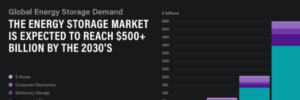Keywords
Geologic Hydrogen, Koloma, Bill Gates, Jeff Bezos, Clean Energy, White Gold Rush, Natural Hydrogen, Renewable Energy, Carbon-Free Hydrogen, Energy Transition, Hydrogen Discovery, Hydrogen Production, Hydrogen Economy, Sustainable Energy, Breakthrough Energy Ventures.
A groundbreaking shift is underway in the energy sector as Koloma, a U.S.-based startup backed by Bill Gates and Jeff Bezos, leads the charge in uncovering a vast, untapped resource: geologic hydrogen. Dubbed the “white gold” of clean energy, this natural hydrogen buried beneath Earth’s surface is rapidly gaining attention for its potential to revolutionize the global energy transition and dramatically reduce carbon emissions.
What is Geologic Hydrogen?
Geologic hydrogen, also known as “white” or “natural” hydrogen, is a form of hydrogen gas naturally found deep underground. Unlike hydrogen produced through fossil fuels—which contributes to greenhouse gas emissions—this buried hydrogen could be a gamechanger in providing a clean, abundant energy source. Koloma’s CEO, Pete Johnson, explained that geologic hydrogen represents a rare opportunity to leverage existing expertise from the fossil fuel industry to uncover carbon-free energy resources.
Koloma: Leading the Hydrogen Revolution
Koloma, headquartered in Denver, Colorado, has raised over $305 million in funding, with significant backing from influential investors like Khosla Ventures, Amazon’s Climate Pledge Fund, and Breakthrough Energy Ventures—Bill Gates’ climate technology fund. The startup is positioning itself at the forefront of a new global energy race, one that analysts from Rystad Energy have likened to a “white gold rush.”
By repurposing techniques from oil, gas, and mining industries, Koloma aims to speed up the discovery of geologic hydrogen, transforming it into a viable, large-scale energy solution. “We’re adapting existing expertise to mature this industry faster,” said Johnson. “This is an exploration and production business, and we believe geologic hydrogen will play a pivotal role in the global energy shift.”

The Potential of Geologic Hydrogen
Exploration for this clean energy source is gaining momentum worldwide, with efforts underway in the U.S., Canada, Australia, and Europe. As Johnson noted, geologic hydrogen offers several advantages as a primary energy source—one that is naturally occurring, carbon-free, and with a minimal environmental footprint compared to traditional energy resources like oil and coal.
Koloma envisions that tapping into the U.S.’s geologic hydrogen reserves could significantly boost domestic ammonia production, reducing reliance on foreign imports and positioning the country as a leader in clean energy exports. “This resource has the potential to not only decarbonize industries but also create new, sustainable energy pathways for the future,” Johnson added.
Challenges and Opportunities Ahead
Despite the growing excitement, unlocking geologic hydrogen’s potential is not without its hurdles. Critics argue that the current supply is minimal, and concerns about the environmental impact of extraction, transportation, and distribution remain. The Hydrogen Science Coalition, a group of scientists and engineers, points out that the amount of geologic hydrogen currently produced is less than the daily output of a single wind turbine.
Nevertheless, Koloma remains undeterred. “We are very well-capitalized and prepared to face these challenges thoughtfully and patiently,” Johnson said. With continued investment and technological advancements, the company believes it can overcome these roadblocks and usher in a new era of clean energy.
A New Era of Clean Energy
As global demand for clean, sustainable energy intensifies, Koloma’s efforts to harness geologic hydrogen could mark a transformative moment for the energy industry. With the backing of tech giants like Bill Gates and Jeff Bezos, and a growing interest from investors worldwide, the race to unlock this hidden “white gold” is only just beginning.
In a world rapidly transitioning away from fossil fuels, geologic hydrogen may be the key to powering a cleaner, greener future.
Koloma, a startup backed by Bill Gates and Jeff Bezos, is pioneering a new wave of exploration for geologic hydrogen, often called “white” or “natural hydrogen.” This naturally occurring hydrogen, found deep beneath the Earth’s surface, is gaining attention for its potential to transform the clean energy sector. Unlike hydrogen traditionally produced from fossil fuels, geologic hydrogen could offer a low-carbon alternative with a smaller environmental footprint.

Koloma uses advanced technologies, including seismic mapping, satellite imaging, and AI-assisted tools, to identify hydrogen-rich underground sites. These methods, adapted from oil and gas exploration, allow the company to locate natural hydrogen trapped in underground cavities. This hydrogen is formed through processes like serpentinization, where water reacts with iron-rich minerals, producing hydrogen gas.
The potential of this resource is immense. Koloma aims to tap into vast hydrogen reserves, which could significantly contribute to the global demand for hydrogen energy. In fact, studies suggest that even a fraction of these natural deposits could supply the world for centuries. Koloma has already raised over $305 million to fund its exploratory efforts, with backing from investors like Khosla Ventures, Amazon’s Climate Pledge Fund, and United Airlines’ venture capital arm.

However, challenges remain. Transporting and storing hydrogen, even natural hydrogen, is expensive and prone to leakage. Furthermore, scaling the extraction process and overcoming technical barriers will be critical for success. Despite these hurdles, the company is well-capitalized and positioned to play a crucial role in the energy transition.





